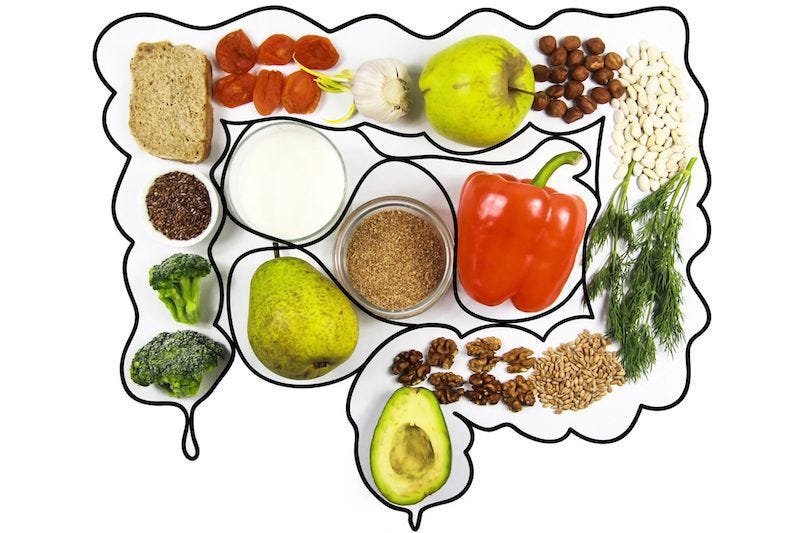Here Are Some of the Best Highly-Absorbed Vitamins
Medically Reviewed by Dr. Paris Kidd
Vitamins and certain mineral nutrients are essential for our survival.
The body runs on thousands of enzymes, most of which need vitamins or minerals to be part of their structure or as necessary cofactors for the reactions they make happen. Without essential nutrients, we cannot make and use energy. And without energy, there’s no life.
The Nutrition Gap
Based on large surveys of Americans’ dietary patterns, the U.S. Centers for Disease Control and Prevention (CDC) consistently reports insufficient average intakes of various essential nutrients, vitamins, and minerals. Due to the poor nutritional quality of the standard American diet (SAD), many people aren’t receiving proper nutrition from the foods they eat.
Since so many American foods are grown in poor soils, sprayed with poisons, and technologically manipulated, even those who eat a relatively healthy diet may find it challenging to get all the nutrients they need. Also, due to genetic individuality, some people need more of certain vitamins and minerals than the average person does. Everyday stress also can burn away nutrients.
To help fill the nutrient gap, it’s crucial to get additional supplies of these nutrients. That’s where supplements come in. The reason they’re called supplements is because they supplement your diet with the nutrients you might be missing by only fueling your body with food.
As you search for effective, high-purity supplements, there are many elements to consider…such as bioavailability.

What is Bioavailability?
According to the National Institute of Health’s Office of Dietary Supplements, bioavailability is defined as “the amount of (a given nutrient) in food, medications, and supplements that are absorbed in the intestines and ultimately available for biological activity in your cells and tissues.” Bioavailability has also been referred to as one of the least appreciated and understood factors of nutritional health as it pertains to longevity, morbidity, and overall quality of life.
In pharmacology, bioavailability refers to the percentage of an administered substance that reaches the bloodstream. A medication delivered intravenously is considered 100% bioavailable.
With respect to dietary supplements, bioavailability is not just the amount or fraction of the nutrient that’s absorbed into the bloodstream, but also how much of it is used by the body or stored for future use. Due to their oral consumption, dietary supplements take longer to enter the bloodstream than a substance administered intravenously.
One of the most important aspects of bioavailability is absorption.
Absorption

Mineral molecules need to be broken down into charged ions for efficient absorption. Many supplements contain minerals as oxides, which makes them poorly absorbed since they don’t easily form ions. Magnesium is commonly used as an oxide because it takes up less space in the tablet or capsule (and it’s cheaper than the better absorbed ionic magnesium compounds).
Following dispersion by the digestive system, practically all the vitamins and ionic essential minerals are picked up by transport proteins located in the intestinal lining, then transported into the blood. Sugar (sucrose) interferes with the absorption of vitamin C by blocking the vitamin C transporter.
Bioavailability Inhibitors
Many things can adversely affect bioavailability, such as the quality of food, the overall health of the GI tract, pregnancy status, and genetic makeup. Here are some additional factors to be mindful of:
- Alcohol – Alcohol can interfere with the intake and absorption of vitamins A, D, E, K, practically all the B vitamins, and the minerals magnesium and zinc. Alcohol increases the metabolic demands for nutrients, accelerates their loss from the body, and impairs their storage and utilization.
- Caffeine – Caffeine can reduce the absorption of nutrients and increase the excretion of important vitamins and minerals. It also contains tannins, which can inhibit the absorption of the B vitamins, calcium, iron, and magnesium.
- Digestive issues – Crohn’s, irritable bowel syndrome (IBS), celiac disease, and other digestive problems can significantly hinder the body’s ability to properly absorb and utilize nutrients.
- Medications – Many over-the-counter and prescription drugs impair nutrient absorption and/or utilization. A well-known example is statins, which impair the absorption of coenzyme Q10.
- Stress – Excessive stress can increase cortisol, the body’s primary stress hormone. Stress can deplete the body of its nutrients and wreak havoc on the digestive system.
Bioavailability Enhancers
Just as there are many things that reduce nutrient absorption and metabolism, there are also many things that can help increase the bioavailability of nutrients.
- Time of Day – Some supplements may have more benefits when taken at certain times during the day. For instance, magnesium should be taken in the evening since it has calming properties.
- Take with Food – Since supplements generally aren’t well tolerated when taken on an empty stomach, most should be taken with a meal. Fat-soluble supplements, like vitamins A, D, and E, should be taken with a meal containing fat to aid in their digestion.
- Supporting Ingredients – Some ingredients can increase the bioavailability of other nutrients. One example is vitamin C, which can enhance the bioavailability of iron.
- Proper Storage – To help ensure the efficacy of your supplements, be sure to store them in a cool, dry area away from direct sunlight (try this handy vitamin organizer). It’s a good idea to store fish oil and other liquid or liposomal products in the fridge. Make sure they’re tightly sealed to prevent moisture from getting in.
In Summary
Ongoing population surveys clearly indicate the modern diet isn’t providing sufficient average intakes of various essential nutrients. Failing to get enough of these vitamins and essential nutrients may lead to serious, long-term health issues.
Bioavailability is the percentage of the dose of a nutrient or other substance that is absorbed into the bloodstream and used by the body’s cells. Many things can interfere with nutrient absorption including alcohol, caffeine, stress, and some prescription drugs. You can potentially get more from your supplements by taking them with food, following the directions for use, and making sure they’re properly sealed and stored.
One thing to keep in mind is that just because a supplement claims to contain a particular amount of a specific nutrient doesn’t mean your body will absorb the entire amount. Always conduct thorough research on the nutrients included in a dietary supplement before adding it to your daily regimen.
BrainMD’s vitamins are ultra-pure, science-based, and brain directed. Our high-quality supplements are made from ingredients that have undergone rigorous clinical testing and have been formulated for maximum bioavailability, to give you the nutrients you need to be your best self.
At BrainMD, we’re dedicated to providing the highest purity nutrients to improve your physical health and overall well-being. For more information about our full list of brain healthy supplements, please visit us at BrainMD.




I just commence my pharmacology unit this semester, its only week 2 and things are already starting to get fuzzy. i have been watching your videos to get myself over the concepts in this unit, i’m starting to have hopes that there is a potential that i may just be alright with a bit of push from your videos. you are a champ, much appreciated you enthousiasm and keen to help